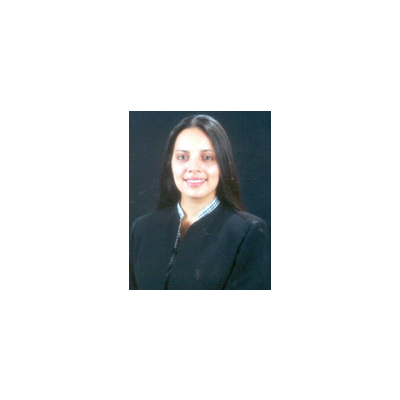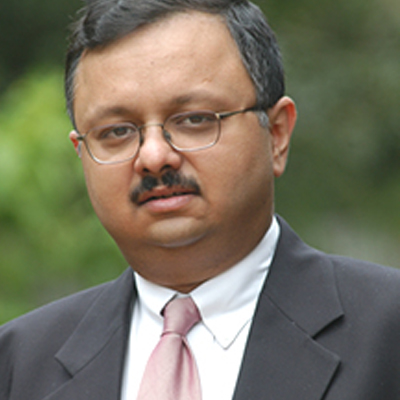Royalty Revisted
Ultimate luxury, instant gratification and imperial magnificence - qualities that are rare in today's world. Staying in the Udaivilas is like reliving the royal era in a more refined and modern way. The Oberoi Group's newest luxury resort is ideal for those seeking both beauty and tranquility.
The architecture of Udaivilas follows Mr. Oberoi's vision that it must represent the traditional designs of the grand Mewar tradition. Located on the banks of Lake Pichola, Udaivilas commands a beautiful view of the City Palace and two seventeenth century island palaces on the lake - Jag Mandir and Jag Nivas.

Guests are escorted from Udaipur airport in a chauffeur driven limousine to a private jetty, then ferried to the resort on board one of the resort's elegantly appointed boats. The transfer takes approximately 15 minutes, offering spectacular views of the Lake Pichola and palaces around it.
Spread over 30 acres and situated on an undulating hill, Udaivilas, though primarily a single-storied structure, has been built on three varying elevations, adding to the sense of scale. The architect of this property is Parul Jhaveri and Nimish Pate of Abhikram. Lim, Teo & Wilkes of Design Work is the interior designer. Tony Corbett of Tony Corbett & Associates is the lighting consultant and the structural consultant is Himanshu Parekh.
View of the City Palace from the lobby

The Udaivilas is classic Mewar in style and has antiques and fine paintings adorning the corridors and rooms. Guests can easily slip back into an earlier era when royalty, in their exquisite ensemble, majestically drifted past the elegantly adorned palace halls and colourful gardens. The entire ambience of the palace hotel is mesmerizing.
The architects have been working in the region for the past decade and a half, in order to re-establish traditional building methods, materials and technologies in the contemporary context. The design has therefore evolved as an assimilation of spaces of a traditional palace and the complex surrounding it, with domes and arches, pavilions and balconies, turrets, niches and jalis (screens).
In the main courtyard, soft green landscaping offsets a blend of elegant black granite and white marble. A luminous white marble lotus seemingly floats on a reflection pool. As night falls, the atmosphere takes on an almost surreal quality with the pale gold fa?ade of Udaivilas shimmering on the dark water.
The lobby, an arterial space with views of the lake and the surrounding mountains, has a central dome resplendent in gold leaf, complemented by a magnificent hand crafted chandelier and a white Thassos marble fountain. The flooring is in a combination of beige Karoli sandstone, Udaipur green marble and white Thassos marble.
Miniature 'sheesh mahal': The Candle Room
The lobby lounge, warm and inviting with hand crafted carpets and furniture, offers stunning views of Lake Pichola and the City Palace. The lounge is richly decorated, with Thekri work and a central dome painted in deep cobalt blue, with rays of the sun in gold leaf.
Adjacent to the lobby is the Candle Room, a miniature 'sheesh mahal' (glass palace). In palaces, the Maharajas used at least one of these rooms as a bedroom for the special ambience it created. The ceiling, 25 ft high and 18 ft in diameter, is a stunning reflecting canvas, with intricate Thekri work in the dome.
Head straight to the pool from your room
Thekri work, an art form unique to the region, adorns the space. In Thekri, molten glass is blown into circular balls using pipettes. When cool, molten mercury and lead are poured into the balls, coating the concave sides, and left to cool again. The balls are then broken into pieces, shaped, and stuck onto surfaces in different patterns, using a mixture of lime and marble powder as adhesive. The effect leaves you spellbound.
Surrounding wall niches also have Thekri work in a floral pattern. In the centre of the room is a recessed table in which candles are set. When lit, a spectacular effect is created by the flickering shadows.
The Candle Room offers views of a cascading terraced garden, flanked by stone column torches, which at night create dancing flames on the water. The cascade culminates in a handcrafted bronze sun, which is the royal insignia of Mewar.
Cascading garden culminates with the royal insignia of Mewar
The reflecting pools and fountains play an important part in the overall design. These impart different ambiences at various times of the day and night, augmented by the soothing sound of trickling or cascading water.
Udaivilas has two restaurants - Suryamahal, the main dining room, and Udaimahal, the specialty Indian restaurant. The domes over Suryamahal recreate the day sky, while those over Udaimahal represent the night sky and the Udaipur cityscape. The vibrancy and richness of Indian and Rajasthani culture are reflected in the blue, green and gold colour scheme.
Suryamahal is the perfect setting for enjoying the special menu that has been developed following meticulous research in the traditional royal kitchens of Rajasthan. Udaimahal is open only for dinner and serves traditional Rajasthani and North Indian cuisine. The courtyard adjoining the restaurants is the perfect setting for al fresco dining. Gas torches cast a sense of drama over live performances of music and dance in the evenings.
Soak in the tranquil ambience at the Oberoi Spa
The corridors leading to the guest rooms have 450 stone columns, each individually hand crafted. Many are finished with ghutai, a technique, which like Thekri, is unique to the region. Craftsmen are reluctant to share details of the process, but it is generally known that various kinds of stone are ground and mixed with egg white and tamarind. The final finish is naturally creamy, ivory-like and glows with a special luminosity. It takes a craftsman a month to make a single column and the smooth stucco, made by mixing lime mortar with lime plaster and crushed marble, takes a year to 'cure'.
The Udaivilas has 87 bedrooms, 63 Deluxe, 19 Superior Deluxe, 4 Deluxe Suites and 1 Kohinoor Suite. The Kohinoor Suite features two bedrooms, a living room with working fireplaces, and a private swimming pool overlooking the City Palace, Lake Pichola and the Aravalli mountain range. The Superior Deluxe Rooms have access to a semi-private infinity edge swimming pool off a patio. The Deluxe Rooms are over 600 sq ft each, featuring a seating area and balcony.
The Moghul Suite
Luxurious white marble bathrooms, with Victorian style bathtubs, overlook a private courtyard. All rooms feature a personal bar, tea and coffee maker, telephone with data port, satellite television, compact disc and digital video player and an electronic safe.
Local artisans fashioned the furnishings that grace the light and airy sitting areas and comfortable bedrooms. The interiors are beautifully appointed, with exclusively designed furniture, hand knotted carpets and fine Indian works of art. The wide use of rich fabrics and silk drapes in the rooms remind guests of the colourful art and royalty of Rajasthan.
All the rooms are not only elegantly decorated but are also equipped with modern facilities.
Once you're settled in, recover from your travel with a visit to the Oberoi Spa by Banyan Tree. Relax with a massage, rejuvenate with a facial, or simply soak in a spa hot tub. Here too, the dome represents the day sky to create a fresh, tranquil ambience. Restful private therapy suites and rooms for beauty treatments have been designed to provide an environment ideal for rejuvenation and relaxation. Still feeling restless? You'll love the fitness center, equipped with state of the art cardiovascular and strength training equipment.
Two original structures on the property have been restored - Bada Mahal and Chhota Mahal. An old caretaker has been looking after these buildings for over thirty years. A small coliseum adjoins Bada Mahal, once used by the royals to view tiger and wild boar fights. A twenty-acre conservatory houses many spotted deer, wild boar and peacocks. Surrounded by extensive landscaped gardens, the hotel offers superb walking routes through its exotic, natural surroundings with excellent views over the azure waters of the Lake Pichola.

The resort and its facilities have been evolved with care, retaining as much of the existing topography as possible. Landscape consultant Bill Bensley believes that the gardens will blossom into a tapestry of hidden walkways and avenues that continually surprise and delight, giving each guest a magical experience. The garden paths lead you to exotic plants, and hideaways. It is ideal for long walks among beautiful gardens and the splendid forest of exotic plants. The total effect at Udaivilas is an aura of elegance and understated luxury.
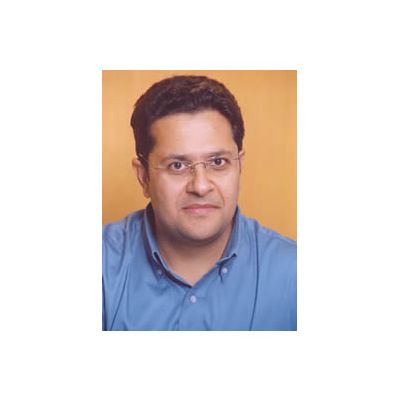




 Films are for entertainment: I like to watch masala Hindi films. I like thrillers and comedies. I don't like the serious stuff anymore. Films for me now are pure entertainment. I don't learn much from them.
Films are for entertainment: I like to watch masala Hindi films. I like thrillers and comedies. I don't like the serious stuff anymore. Films for me now are pure entertainment. I don't learn much from them.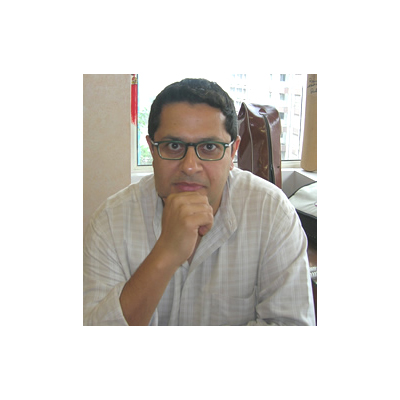







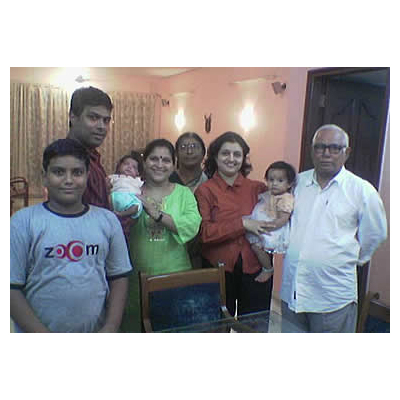
 ady boasts of 12 chess sets from various countries across the globe, they have just added two more from Turkey (where Shruti and Mayank are currently holidaying).
ady boasts of 12 chess sets from various countries across the globe, they have just added two more from Turkey (where Shruti and Mayank are currently holidaying).


